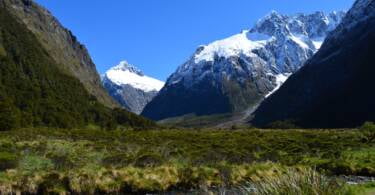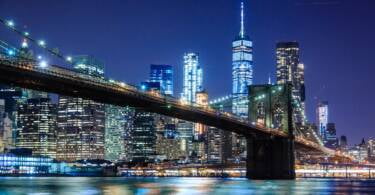My friend and I arrived into Budapest Keleti station after a ten-hour trundle that should have been seven.
My friend and I arrived into Budapest Keleti station after a ten-hour trundle that should have been seven. The train journey, our last of the trip, was arduous, but made the arrival even more satisfying.
Darkness loomed, and without a hostel booked or the faintest idea of how to say anything other than hello in Magyar, we felt a little perplexed. Although that’s the point in it all isn’t it really: the thrill of the unknown.
Like many travellers are for much of the time, we were tired, hungry, yet exhilarated at arriving somewhere new. Our steady progression east, from Amsterdam to Berlin, through to Prague and finally Budapest, felt relatively exploratory – and as per usual, we only had an InterRailing map to guide us. I also only had about £200 left for a four-day stay and a flight home; though that turned out to be more than enough.
After several minutes communicating with various passers-by, in a mix of Spanish, intermittent German and eventually textbook English, we were pointed in the right direction – and so began a half-hour walk to our hostel. We passed through dimly lit streets covered in makeshift mini car boot sales without the car, and thick-moustached Turkish men shrouded in smoke. They gazed at us as we admired their dusty sofas, lamps and old shoes that lay scattered along the pavement.
It was lovely to know that we were deep into Eastern Europe finally; the architecture alternated between rectangular grey and modernised corporate glass; many of the passing cars were unknown to us and there were countless accents and symbols upon the letters.
While the vibe was generally friendly, the sordid looks we received from a group of stocky, tattooed skinheads coming out of a pub meant we didn’t particularly fancy sleeping at a bus stop. With that in mind, we stopped reciting history and for the first time in a month, proceeded with a slight element of anxiety in finding somewhere to stay. Of course, you encounter such looks in any city; I find it amusing what being in another part of the world does to you.
Without getting too political, we of course noted Budapest’s reminiscence of Soviet history. After coming from the overtly liberal, western European cities of Amsterdam and Berlin, and the cosmopolitan Prague, the Hungarian capital really did feel like full-on escapism. It still sang of its relatively recent capitalist shift, and in parts, felt as if you were stepping back to the late 80s.
It was hot, too. While it was well past nine in the evening, the air was still warm and dry, my friend commented on how it must have been scorching earlier on. And as we walked, the spicy scent of goulash filled our noses, so we walked ever faster in the hope that dinner would soon grace our yearning. After stopping for a quick can of Miranda Orange, we reached our destination: a tall, grey structure that echoed communism and towered above us like a dictator. I still don’t know the name of the place, but it was right next to the River Danube, which sat black and transient under the falling moonlight. Across from us was the Pest side, and over the water we could see the majestic Hölbling Palace. A few Polish backpackers were smoking outside on the stairs leading up to the entrance, and inside, the basement bar, which was strangely decorated in a sub-Saharan African theme, buzzed with beer and noise.
After managing to acquire a room, we felt safe in the knowledge of a bed for the night, and off-loaded our bags in preparation to wander. The building we were told is now a seasonal school; proven by row upon row of cracked mirrors above washbasins, the communal showers and a misplaced maths book I found in the wardrobe.
We washed feverishly, using up my last drop of body wash under yellow water that stung the eyes. As we dried, we walked about 50 metres and found a restaurant: tables elegantly placed in the centre of the street; candles and fast-paced chatter hung in the cool Danube breeze.
The food was exceptional, and we sat and devoured three courses of Hungarian tradition: Goulash soup; Paprikás (spiced steak stew); and a decadent cake smothered in chocolate and liquor. It was delicious, and with a litre of beer costing only 1,500 Hungarian Forints per head, which is the equivalent of around five Euro.
After a gracious thank you and a warm farewell to the smiley waiter, we heeded his advice, and crossed the arching bridge from Buda over to Pest, to a club called Rio where, after shots of strong Palinka, dark-haired Romanian girls taught us how to dance.
It was a poignant beginning to the end of an InterRailing excursion; and more than ever, the sentiment of travel began to rise.








